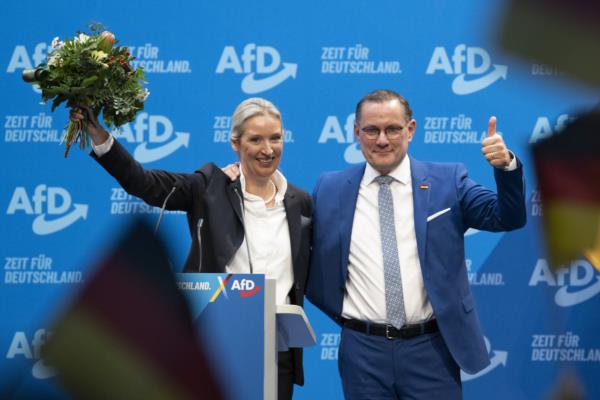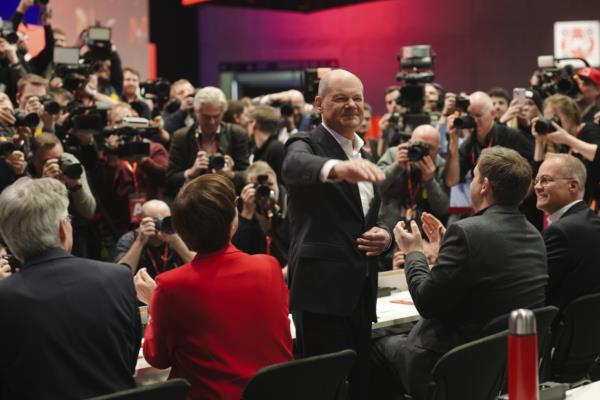
Thousands of people gathered in Riesa, Germany to protest against a convention held by the far-right Alternative for Germany party. The demonstration caused road blockages and delayed the start of the meeting, which marked the beginning of the election campaign for the upcoming national election.
The heavy police presence in Riesa, located in the eastern state of Saxony, aimed to maintain order as officers cleared some protesters from the streets. Despite the disruptions, the two-day convention eventually commenced, albeit over two hours behind schedule due to delegates facing blockades on their way to the venue.
During the convention, co-leader Alice Weidel was nominated as the party's candidate for chancellor by acclamation. Weidel, who faced delays herself, expressed gratitude to the delegates for overcoming obstacles to attend the event.










Recent polls indicate that the Alternative for Germany party holds the second position with approximately 20% support ahead of the election. However, Weidel's chances of becoming Germany's leader are slim as other parties have refused to collaborate with AfD.
The mainstream conservative opposition Union bloc currently leads in the polls with around 30% support, with candidate Friedrich Merz being the favored choice for the next chancellor.
The Union's campaign focuses on revitalizing Germany's economy and addressing irregular migration. Weidel criticized the Union as a “party of fraudsters” and urged voters to support AfD, emphasizing the party's stance on border control and deportation of asylum-seekers.
Merz, during a news conference in Hamburg, highlighted his party's commitment to bringing about “fundamental change” following the collapse of the previous coalition government led by Chancellor Olaf Scholz.
Scholz, who is seeking re-election, acknowledged past mistakes and emphasized the need to move forward. He criticized the Union's proposals as catering to the wealthy and potentially damaging the country's budget.
Both candidates reiterated their respective policy positions, with Scholz emphasizing his diplomatic approach and Merz focusing on economic growth and stability.
The election campaign in Germany is gaining momentum as the candidates present their visions for the country's future amidst a backdrop of political tensions and economic challenges.







